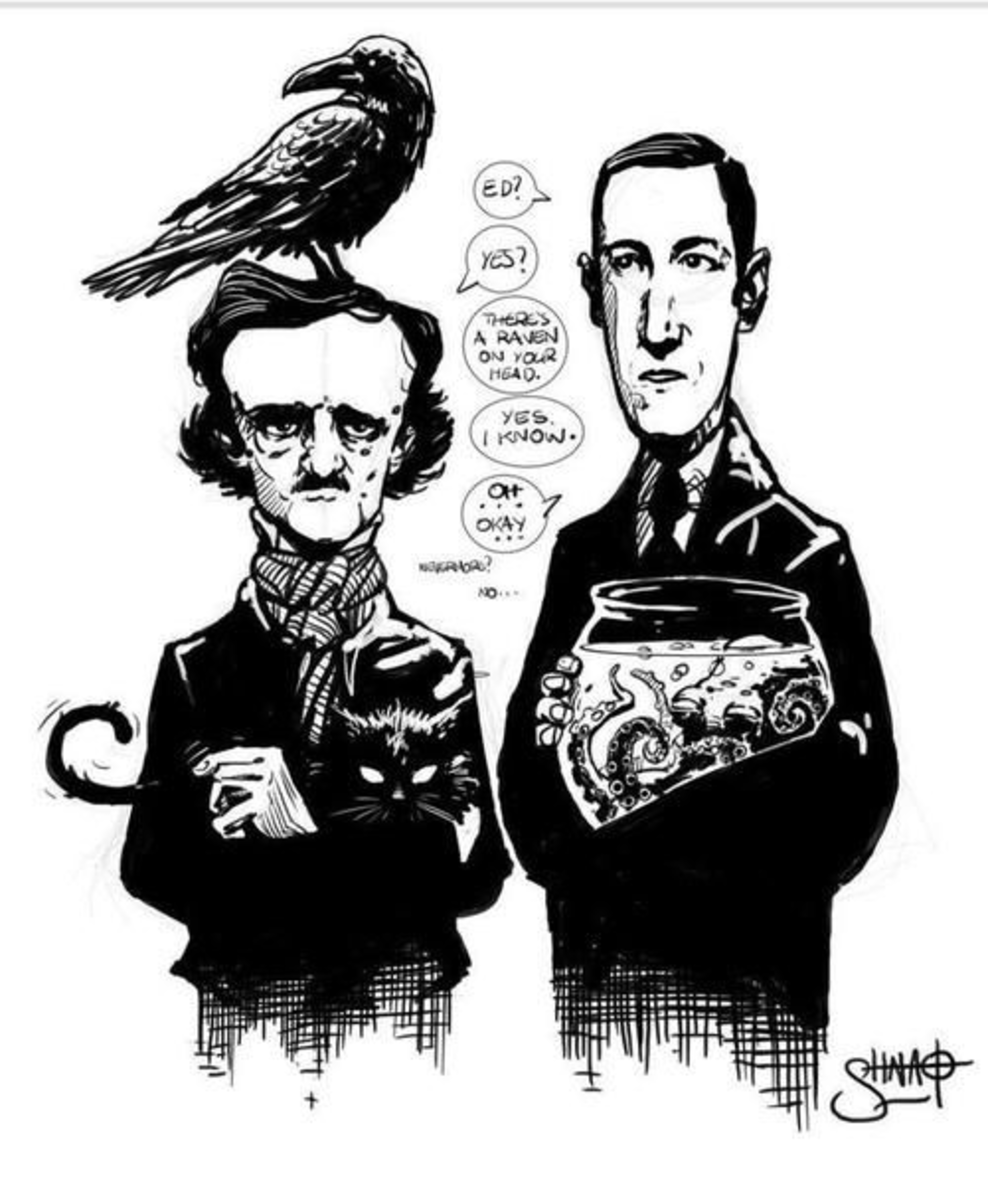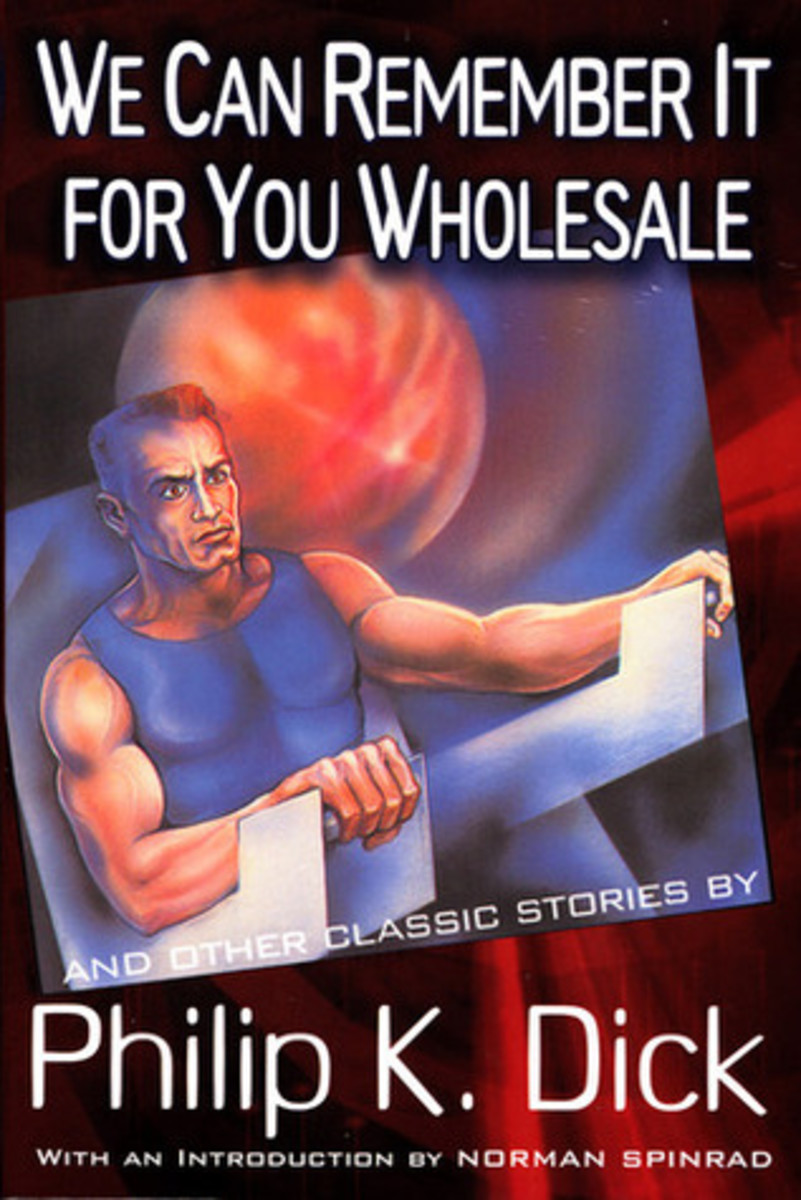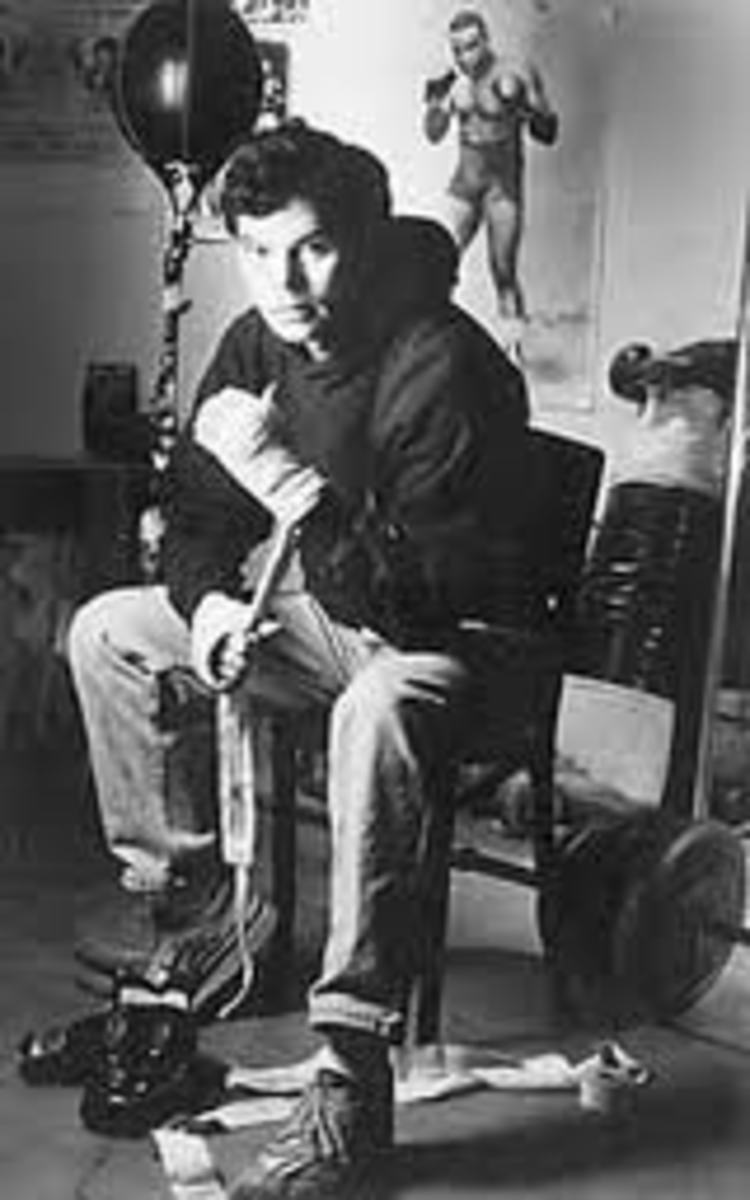Year's Best SF 16: A Book Review

Today I want to take a look at a collection of short form science fiction collected into a volume called "Year's Best SF 16," edited by David G. Hartwell and Kathryn Cramer. The compilation was put together and published in 2011, for individual stories all published in 2010.
There are twenty-one stories; and what I'm going to do is very quickly run through each of them, with an eye toward giving you a concrete characterization of them. My goal is to present to you, as clearly as I can, a good picture of what you will be getting if you decide to read this volume, these stories.
I will not be doing plot summaries. I never do that. I also will not be touching on esthetics like "character development," or "quality of the plot," and so forth. Such judgments are subjective. It is enough that the stories were all written by professional science fiction authors; and they were originally published, separately, by professional publishing organizations; and are published, here, together, by Harper Voyager (an imprint of Harper Collins). My point, here, is that you may presume that these works met certain thresholds for technical competence in the areas of "plot" and "character development," and the like.
The best way to let you know what I mean is to jump right in.
1. Sleeping Dogs by Joe Haldeman
This is a hard science fiction story. By "hard" science fiction, I mean that futuristic science and technology are present and remain integral to the story from beginning to the end. Not all science fiction is categorizable as "hard," in my opinion.
Think of this story as in the mold of "Total Recall." It is about an ordinary man, whose memories of being something other than ordinary, have been suppressed. The way this usually plays out in the movies is that the suppressed identity is the one the hero or heroine valiantly reclaim for whatever "heroic" reason.
By the way, Total Recall is a movie based on the short story of science fiction writer, Philip K. Dick (1928-1982) by the same name. Its interesting to note that in the original story, as written by Mr. Dick, the "hero" does not valiantly seek to reclaim those old memories (that old, more exciting life). He chooses to remain the seemingly humdrum nine-to-five, more boring, minor bureaucrat. He is "not that guy anymore," and all that. So there is the stong suggestion that memory is identity.
The same applies to the protagonist of Sleeping Dogs.
2. Castoff World by Kay Kenyon
I have a working theory about hard science fiction. It is very left-brain-oriented and technical---that's not the theory. But I am convinced this is so because there is always an underlying myth that the tale is trying to put flesh and blood to. So, if you are, like me, very right-brain-oriented and non-technical, and you find yourself reading some hard SF, try asking yourself the following question as you read: What underlying myth is this story trying to actualize?
If you do that, you may find the going easier.
I think of this story as an embodiment of the myth of "Mother Nature." The story is about an island that is completely self-regulating. Any produced waste is broken down into either good or benign matter. In this way, any accumulated effects of pollution (which is impossible in this situation) are avoided.
If I may be "political" for a moment: I suppose this is a story that the "Drill baby, drill" folks would absolutely love!
Okay, I'm done being political now. :D
3. Petopia by Benjamin Crowell
This is the third straight hard sci-fi tale; and you could do worse than to think of Pinocchio, as you read---the shoemaker's fervent wish that the wooden doll could be transformed into a real boy, a son.
The story is about siblings, a boy and a girl each heading for their teens. They come into possession (there is an allusion that the concept of 'possession' is a relative one) of a small robot. The children, virtual orphans, have a rough time of it. It is imperative that they figure out a way to get the robot to transcend the parameters of his original programming. If they can do this, it could mean the chance to vastly improve their material circumstances.
4. Futures in the Memories Market by Nina Kiriki Hoffman
This is a story about a day in the life of what I would call a kind of memory-prostitute. She goes on trips, has experiences, meets people, sees things, hears things, tastes things, touches things, and so forth. These sensations, of course, form memories. But these memories do not belong to our memory-prostitute. People hire her, she goes on these trips and has these experiences; she gets paid and the memories are extracted from her and implanted in the clients.
Again, the suggestion is that memory is identity. This being the case, there is a very real way in which our memory-prostitute sort of rents out identity, goes through a kaleidoscope of identity, never being allowed to settle on one.
I have to say that I found it hard to detect the point of the story. But this is not a criticism; surely the deficiency is mine. However, it is interesting to think about this story in connection with another in this collection: To Hie From Far Cilenia by Karl Schroeder.
Now then, as far as I know, the two stories are not related in any way. And yet, I cannot help thinking of of Schroeder's story as the culmination of an experiment started by Hoffman's tale. It seems to me that they are like fitting pieces of a puzzle.
In Mr. Schroeder's story we are dealing with virtual worlds and all the confusion that brings. But we are also dealing with an emerging mode of being, cyranoidism, you might say. In Schroeder's story, it is possible for people to "ride" on another "cyranoid" style. By the way, the word cyranoid comes from Cyrano de Bergerac. Cute, right?
So, for example, if you wanted to "ride" me, there is a process in place whereby your mind could remotely inhabit my body. My personality doesn't go away or anything like that. You would sort of be "hitching a ride," so to speak.
Just for fun, it might be amusing to think of the benefits of such a being-option.
5. A Preliminary Assessment of the Drake Equation, Being an Excerpt from the Memoirs of Star Captain Y.-T Lee by Vernor Vinge
More hard sci-fi, this story is built around an equation, the Drake Equation, meant to calculate the probability of intelligent life existing on other worlds, and so forth. A discussion of the merits of the equation (as well as some suggested refinements) is initiated by Captain Y.-T. Lee, as a diversionary tactic: to keep two factions (scientists) from killing each other for allocation of resources for research projects.
The story ends on the hopeful note that, perhaps, humans will spread out among the worlds, staying well ahead of species-threatening events, and so on.
6. About It by Terry Bisson
This story has two interesting features.
A. It is told in a narrative style I like to call the experiential past tense.
B. It falls outside of the category of so-called hard science fiction.
First of all: What is the experiential past tense? Well, every fiction story is written in the grammatical past tense, yes? That is because it is a story told; the events have already transpired. Someone is merely telling you about it. But, you, the reader or receiver of the tale experience it as though the events are happening right now: I call this routine method of delivery the experiential present tense.
How can you tell that we are dealing with the "experiential present tense" (the normal mode of fiction delivery)? You can tell this by the fact that you will see many groups of words with quotation marks around them. I'm talking about dialogue, of course; and the quotation marks are there to relay specificity, the "exact" words of each character are given.
Most fiction, then, is written in this style: grammatical past tense-experiential present tense.
The other kind of delivery system of fiction, I am thinking of, goes like this: grammatical past tense-experiential past tense. Here, the same understanding of the past tense is both understood by you the reader and the internal narrator of the story. What I'm saying is that the usual past tense story is related as the past by the internal narrator, so that it feels like something that happened in the past; you do not get a present sensation. Does that make sense?
The way you can tell the experiential past tense is the fact that you will hardly see any groups of words with quotation marks around them. This is because we are not relating specifics but generalities, which is the way you and I tell stories to one another in real life. Personally, I find this narrative style appealing.
The story falls outside the category of hard science fiction. I would categorize "About It" as more speculative fiction as opposed to science fiction per se.
What is speculative fiction?
The way I define the term is like this: Any fiction that is structured around what I think of as magical realism.
What is magical realism? For me, in fiction, "magical realism" is a scenario in which uncanny effects are presented without the aid of any direct scientific or magical stimulus. In other words, you never get as an explanation: a spell by a sorcerer or some alien matter transformer or something like that.
"About It" by Terry Bisson is such a story, in my opinion---in general. It is told from the perspective of a janitor (unless he's "Good Will Hunting" how 'hard' can this story be?), who is allowed to have custody of a Sasquatch-like creature. The creature is the main character, and since he is mute, you can see there is no reason why the story would be full of lines with quotation marks around them, yes?
7. Somedeva: A Sky River Sutra by Vandana Singh
This is a gorgeous story. As you can probably tell from the title and the by-line, the author and the story's theme are Indian. It is a story about the power of stories. It is a story about a story-teller who becomes part of the story tapestry he weaves. It is a story about a story-teller who charms a goddess with his stories, and hopes to cure a princess of crippling depression with the same.
If I say anymore, I'm liable to ruin it for you. Please read this story; it is truly gorgeous!
It is written, appropriately, in the experiential past tense that I have discussed above. It falls outside of science fiction altogether in my opinion. But that is perfectly okay with me. I suppose it would be most appropriate to think of this story as spiritual fantasy, sort of.
8. Under The Moons Of Venus by Damien Broderick
I have to admit that I do not know what to say about this story. Once again, I am quite sure the deficiency is mine. But I know that I cannot trust the point of view of two out of the story's three characters; and the one who seems to be the rational one, may very well be the most delusional of all.
This is either a hard science fiction story; or it is not and all of the mathematical physics that two of the characters chirp back and forth to each other is, when you get right down to it, nothing but numerology. Perhaps that's too harsh, let's call it Babylonian astronomy (Remember that some of Babylonian astronomy contained what we know as astrology today).
if this is not a sciene fiction story, then it is one of delusion, which, ironically, actually makes this story suitable for a mainstream "literary" collection.
9. All the Love in the World by Cat Sparks
This is, quite simply, a story of the pain of unrequited love. The only thing that makes this "science fiction," per se, is that it is set in a future post-apocalyptic scenario. Otherwise the story is quite straightforward and featurable in any mainstream literary collection, in my opinion.
10. At Budokan by Alastair Reynolds
What if a dinosaur could play rock guitar and sing, after a fashion? Well. that's this story. Its so absurd its beautiful. Enjoy!
11. Grafitti in the Library of Babel
Remember, when reading hard science fiction you should ask yourself what myth the story is trying to actualize.
You will recall the Tower of Babel from the Bible. This myth is given for the origin of all the various human languages of the Earth.
Well, in this story the alien invasion theme is handled in an original way. It seems that they are doing this gradually by, somehow, tampering with Earth texts of all kinds. The tampering even threatens the level of the human genome.
12. Steadfast Castle by Michael Swanwick
This is an amusing story about fully automated house and a police detective. They are the only two characters in the story, which is told fully in dialogue. Its a murder mystery. Who killed the master, (a he) of the house (a she)?
13. How to Become a Mars Overlord by Catherynne M. Valente
This is a story told with no characters and no dialogue. As you read this story, think of the Homestead Act of the 1860s. Imagine the kinds of ads one might read in a newspaper, calling people to sign up today for vast, unspoiled land out west! Do that and you will get what this tale is all about. Also, is Mars a place or a state of mind?
14. To Hie from Far Cilenia by Karl Schroeder
Since I already covered this one in number 4, we move on.
15. The Hebras and the Demons and the Damned by Brenda Cooper
This is basically a space-aged new frontier story. These people are trying to recreate a human, Earth (American) lifestyle on another planet. They must meet the challenges of a strange new environment against "wild things" more fierce than anything they remember from Earth.
16. Penumbra by Gregory Benford
This is a plague story. Sometimes there's nothing to do but hold on and be lucky.
17. The Good Hand by Robert Reed
What if the United States emerged as the number one superpower in 1945, while keeping an iron grip on atomic technology, so that absolutely no one else could get their hands on it? What is they enforced an international embargo on atomic technology? How long would America's friends remain "our" friends?
Again, another story suitable for a "literary" collection. Which is to say that there are no fancy "science fiction" effects.
18. The Cassandra Project by Jack McDevitt
This is one of the most fascinating stories in this collection. "First contact" is handled in a brilliantly original way. Prepare for a stunningly anticlimatic result of first contact in this story. The story is deftly handled, of course, but be prepared to be somewhat "bummed out" for a time; but it is something to think about. You will ask yourself if "aliens" deserve to be up on that pedestal. Is technological advance all its cracked up to be?
19. Jackie's Boy by Steven Popkes
This is a sweet, heart-warming story of a boy and his elephant. Perhaps its more accurate to say that this is a sweet, heart-warming story about an elephant and her boy! You see, this elephant can talk---and she (Jackie) is not the only one.
Circumstances conspire to force Jackie's departure from the zoo, where she is staying. She sets off to find an elephant herd to join, where she can deliver the baby she's carrying. An eleven-year old boy, Michael goes with her.
This is one of the longer stories in this volume, and Jackie and "her boy" have quite an adventure on the way to their goal.
20. Eight Miles by Sean McMullen
This story comes out of the so-called "Steampunk" tradition. Remember the movie "Wild Wild West" with Will Smith and Kevin Kline? That's basically what steampunk is: stories set in the nineteenth century suggesting that technology was more advanced than we thought it was.
This is an alien exile story set in the late-nineteenth century. Remember that movie "Cowboys and Aliens"? Now you're getting the idea.
Think reverse-Superman. You know how the Earth's lighter gravity and yellow sun gives the Kryptonian super powers? Well, think the reverse of that. Think of a being who is physically and mentally diminished by Earth's atmosphere, and only approaches normality (which is super genius) at high altitudes. She (the being is a 'she') finds herself fully restored at eight miles above the Earth.
Throw in an evil Fu Manchu character and a "heroic" balloonist and you've got your story.
21. Ghosts Doing the Orange Dance (The Parke Family Scrapbook Number IV) by Paul Park
I admit at least partial defeat at the hands of this story as well.
Well, you could do worse than taking the title quite literally. You see, there really is some business about "ghosts" doing a dance actually holding orange fruit in their hands.
This is a complicated, challenging story which is told in what you might call a scrapbooking style. There's the first-person narrator, who then allows the story to be told with the aid of various documents, the authors of which are allowed to speak for themselves.
The narrator does do some contemplating on the essential self-justifying, artificially pattern-making nature of memory. Perhaps this is to prepare us to take his account judiciously.
The end of this story made me think of the movie "Sixth Sense," the M. Night Shalaman film with Bruce Willis. Remember, Bruce Willis's character realizes that he, himself, is dead at the end? I felt a echo of that dynamic.
There is even some confusion about who are the "ghosts" and who are the "live people. Remember that Nicole Kidman movie, "The Others"?
Well, thanks so much for reading! Bye! Bye!








